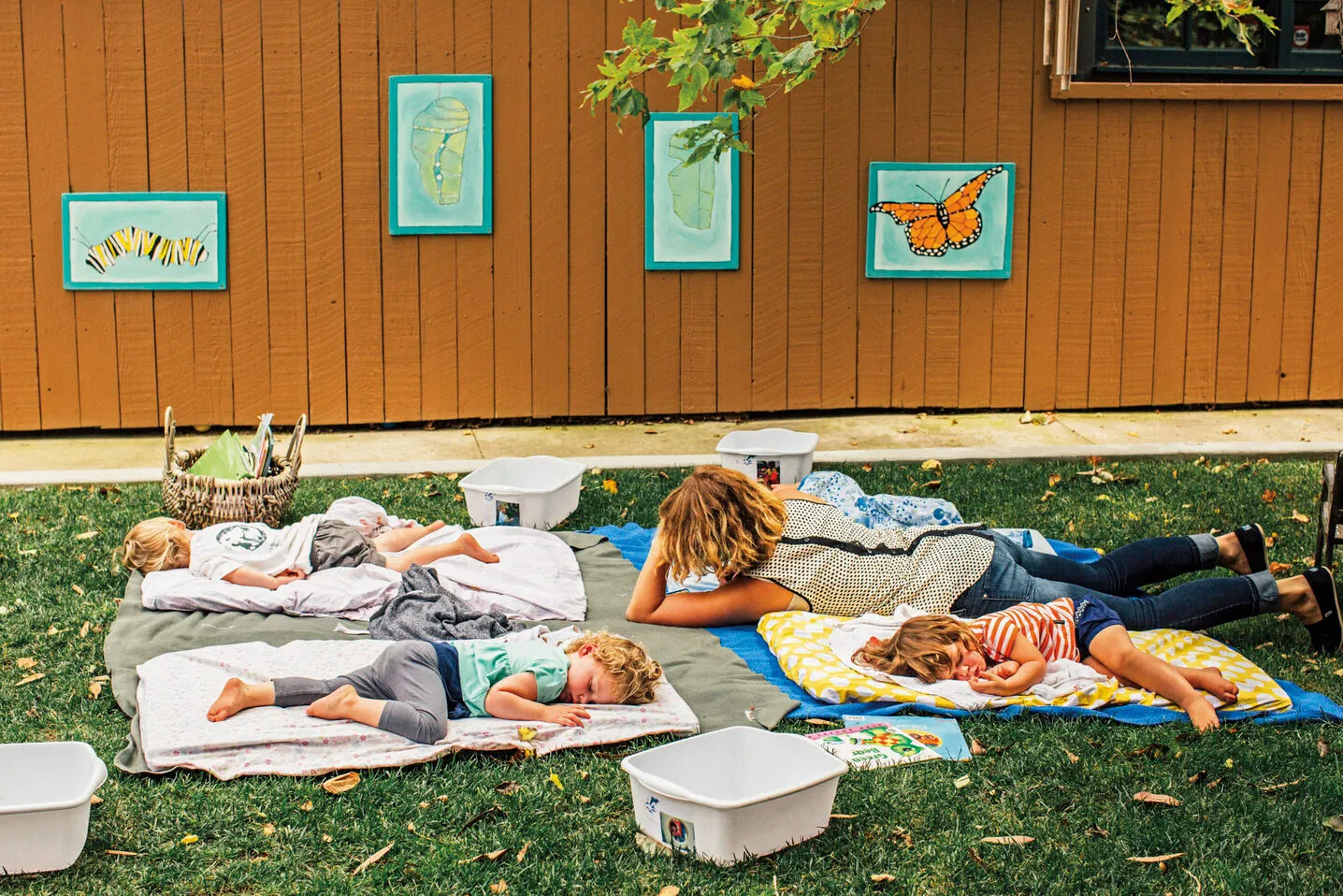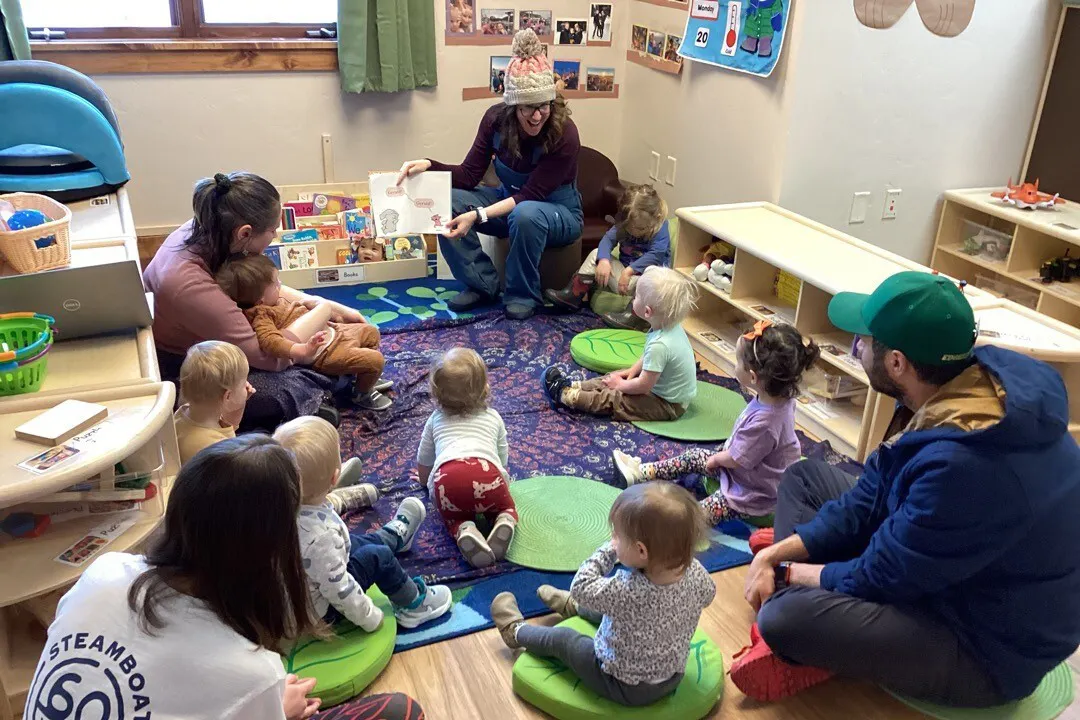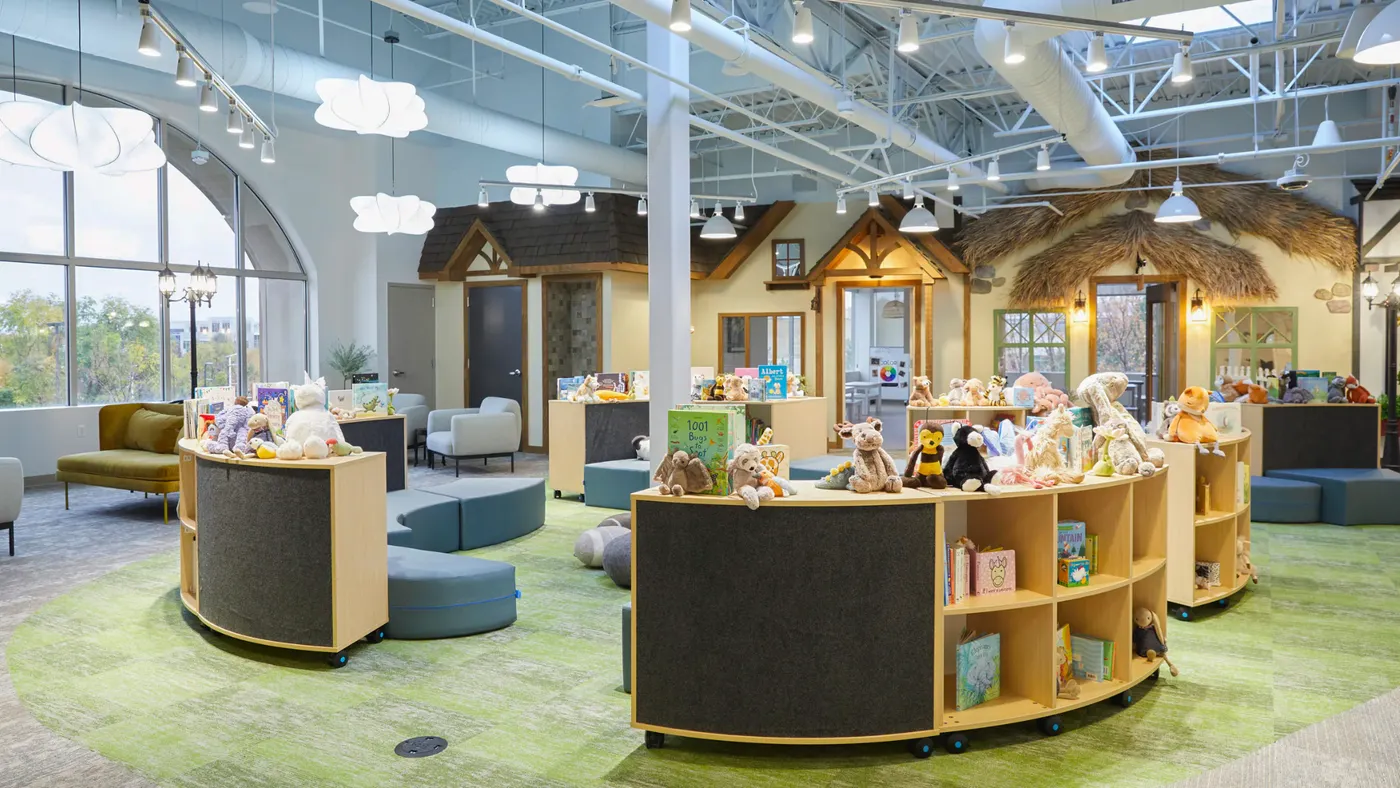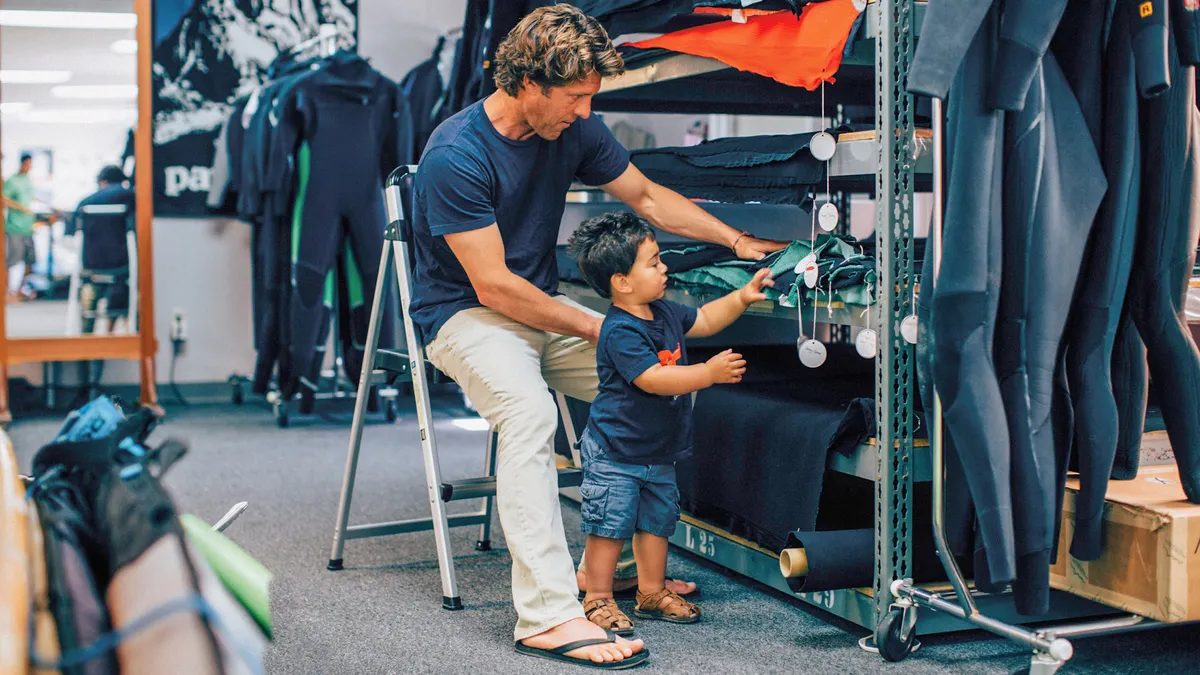This is the fourth installment of a five-part series on employers offering on-site day care.
In the shadow of the Wasatch Mountains is a building that looks like an office from the outside but blooms into a child’s playhouse inside. A tree springs up in the lobby. A main street of shops lines the hallway. Faux-rock archways guide visitors through the building.
This is Cloud Village — Qualtrics’ on-site day care. The 40,000-square-foot investment opened in late 2019 with a focus on science, technology, engineering and math.
“Part of our whole mission is helping organizations close bad experience gaps,” said Julia Anas, chief people officer at Qualtrics. “That can be for customers [and] it can be for employees.” That mission led the company to confront one of the most stressful “gaps” for a working parent: finding reliable, high-quality child care.
Qualtrics extends itself further into the project by using its own survey software to “assess the experience of both the teachers that we have at the facility and how they’re doing, but also our parents’ experience,” she said. “And that is definitely an element that I think differentiates [us] also … we’re constantly looking for feedback and taking action based on what we hear.”
Like Qualtrics, many companies have worked with on-site providers to incorporate their company values and even their products into their day care’s operations, helping to infuse another layer of purpose into employees’ work.

Going all in
Patagonia’s program might take that infusion to the next level. Known for its environmental activism, the company incorporated that value into its on-site child care as well.
The outdoor retailer has three child care centers: two in Ventura, California, where the main campus is, and one in Reno, Nevada, where its distribution center is located. Operations are run by a seven-person family services team, which handles administration for more than 60 teachers and 200 children.
“We want children outside,” said Sheryl Shushan, Patagonia’s director of global family services. “We spend as much time as we can outside. In Ventura, when it’s typically 72 [degrees] and sunny, that could be 70-80% of the day, quite honestly. Some classrooms nap outside with infants.”
Following on the company’s commitment to environmental stewardship, children learn about waste and composting, and about taking care of plants, animals and the natural world. And as an equipment and clothing retailer for outdoor sports like skiing and climbing, Patagonia also encourages children to take risks.
“We spend a lot of time talking about it,” Shushan said. “We have created an environment that meets licensing standards, ... but also allows for some risk-taking. So is it as safe as possible? No. Right? We’ve got boulders in our yard, we’ve got things to climb on. We walk across ice. You know, it’s not as safe as possible. We go outside in inclement weather. But is it as safe as necessary? Yes.”
At Whirlpool Corp.’s child care center, there’s a different focus. “One of our strategies is that we want to improve life at home for our customers, and so we want to start with our own employees,” Sara McLeod, director of global compensation, said. “The kids have language classes, they have science classes, they have cooking classes.”

The day to day
For working parents, access to their children is a major benefit of on-site child care that sets it apart from any other care arrangement.
Steamboat Ski & Resort Corp.’s child care center started a birthday tradition in which a child’s parent or guardian can drop in to read a favorite book and then pass out cupcakes. On the morning of her daughter’s second birthday, Loryn Duke, communications director, was skiing on the mountain — a regular part of her job. She was able to ski to the administration office, remove her skis, and walk the two minutes to the facility to partake in the tradition while still in her gear. Then she headed back to her office and continued her workday.
“Somebody captured a picture of me reading to her on that day, and it is framed in my office because it is my favorite, favorite thing,” Duke said. “It is the definition of why we started the center — the flexibility of parents to be able to do their job but still engage with their children.”
For nursing parents, on-site accessibility means they can drop by the care room, whether it’s a two-minute walk across campus or down a set of stairs, and nurse their child in an attached private space, rather than fussing with pumping and refrigerating the milk for later.
At Patagonia, “we’ll text [nursing parents] and say, you know, ‘Johnny’s hungry. Are you able to make it over here in the next 15 minutes, or should we give him a bottle?’” Shushan said. Even beyond environmental stewardship and love of the outdoors, the program was founded on the importance of fostering strong relationships between children and parents, she said. “We’ve been known to deliver babies to meetings.”
The casual approach works because Patagonia gives workers the “agency to manage their workload,” Shushan said, referencing founder Yvon Chouinard’s “let my people go surfing” philosophy. Chouinard “would say that the kids coming out of our child care center are the best product we build,” Shushan said.
Visuals Editor Shaun Lucas contributed to this story.











